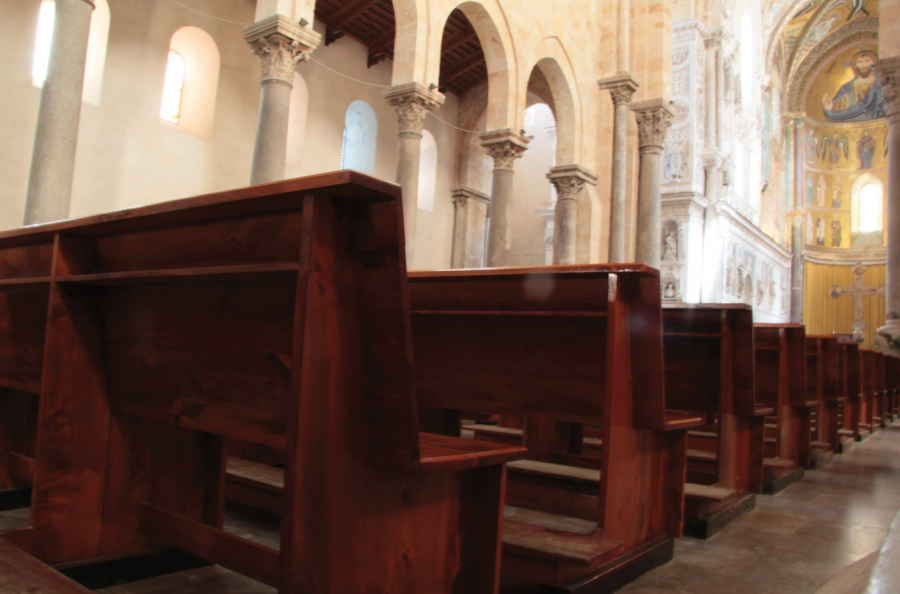Campus members discuss religious freedom, practices among millennials
January 16, 2016
Many religions have a certain weekday or time of day to worship. People of all faiths can celebrate their beliefs Jan. 16 on Religious Freedom Day.
“We have this day because of Thomas Jefferson’s Virginia (Statute for Religious Freedom),” said Psychology Professor Larry Bates. “(America began) disengaging from a single religious faith to proclaim that no one should be ‘compelled to frequent or support any religious worship, place of ministry whatsoever.’”
President George H. W. Bush enacted Jan. 16 as Religious Freedom Day in 1993 with the purpose of recognizing and respecting the freedom each religion has in America. He wanted people to utilize the day by participating in religious practices in their places of worship, homes and schools.
Although we have freedom to practice religion, many studies have shown a decrease in religious beliefs among millennials.
“Many young people come out of homes where they were raised at a time when religion was very important, and as a result they rebelled against that,” said religious studies professor Carl Gebhardt. “They want to do their own thing.”
Senior Brooke Viall said she does not think she is less religious than when she was in high school but feels many millennials are.
“When you’re younger, if your parents went to church, you went to church,” she said. “In college, you have your own freedom. Your parents don’t have the authority to force you to go to church.”
Bates said he thinks the decrease is because people are unhappy with organized faiths so they choose a more personal path.
“I agree that the millennials tend to be less religious, but I don’t think that necessarily translates to less spiritual,” he said.
Freshman Erin Askew said she was involved in church more when she was in high school than she has been since coming to college.
“I believe millennials are less religious,” she said. “I think it’s because all the things going on in the world discourages people. It makes them question God and His plans.”
Bates said the many religions observed in the U.S. can open doors for study.
“From a scientific standpoint, the idea of a diverse, multifaith country such as ours makes for fertile ground for research,” he said.
Freshman Marcus Hammond said he does not think people are less religious, but rather exposed to new things and ideas.
“It used to be people only knew what their family knew and they weren’t aware of all that is out there,” he said.
Gebhardt said there are a couple ways for students, faculty and staff to participate in Religious Freedom Day.
“One is going out of their way to interact with people of different faith stances on campus or in our community,” he said. “The other is in that interaction to assure them that we are not enemies because of our differences that we actually have more in common.”
Freshman Moka “MAN” Nassef said he could participate in Religious Freedom Day by telling people about Islam.
“I could correct some mistakes about what people think of Islam, especially during this time with ISIS,” he said.
Askew said she thinks spirituality and religion are two different things and people should be free to celebrate their beliefs anytime.
Bates said another idea is to take someone of a different belief out to lunch for a chat.
“Take an atheist to lunch and ask them about their world, or if you are an atheist, then take someone of faith to lunch and do likewise,” he said.
International Admissions Coordinator Echo Yang said she does not think young people are losing religion, but they have more choices.
“I believe in Buddhism,” she said. “Spiritually, I feel like I can practice my religion, but there’s not a place to worship. It’s about the heart.”
Although people are given the freedom to choose their religion, it does not mean they always exercise their right. Share your beliefs with others on Religious Freedom Day.


